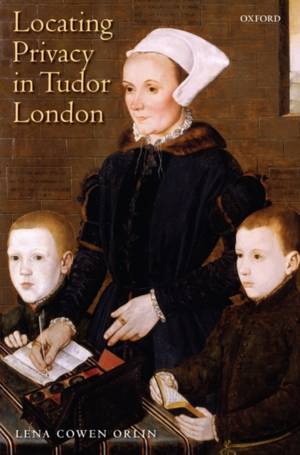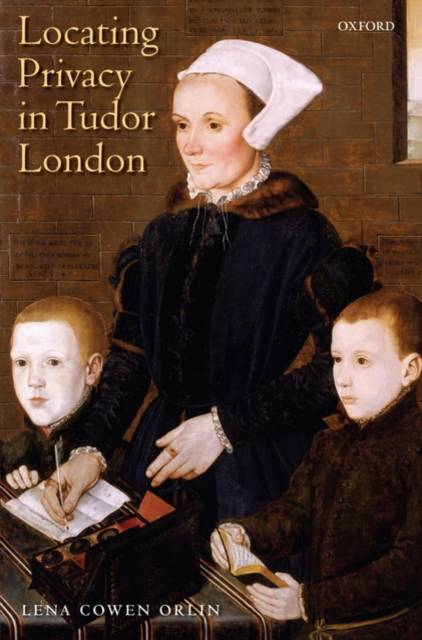
- Afhalen na 1 uur in een winkel met voorraad
- Gratis thuislevering in België vanaf € 30
- Ruim aanbod met 7 miljoen producten
- Afhalen na 1 uur in een winkel met voorraad
- Gratis thuislevering in België vanaf € 30
- Ruim aanbod met 7 miljoen producten
Zoeken
Locating Privacy in Tudor London
Lena Cowen (Presidential Research Professor of English at the Un
Hardcover
€ 164,45
+ 328 punten
Omschrijving
Lena Orlin paints a dense picture of everyday life in Renaissance England, with an emphasis on personal privacy, the built environment, and the life story of a remarkable undiscovered woman - merchant's wife and mother of four, Alice Barnham - with a central role in some of the most important untold stories of sixteenth-century women.
Specificaties
Betrokkenen
- Auteur(s):
- Uitgeverij:
Inhoud
- Aantal bladzijden:
- 388
Eigenschappen
- Productcode (EAN):
- 9780199226252
- Verschijningsdatum:
- 13/12/2007
- Uitvoering:
- Hardcover
- Afmetingen:
- 245 mm x 164 mm
- Gewicht:
- 688 g

Alleen bij Standaard Boekhandel
+ 328 punten op je klantenkaart van Standaard Boekhandel
Beoordelingen
We publiceren alleen reviews die voldoen aan de voorwaarden voor reviews. Bekijk onze voorwaarden voor reviews.








